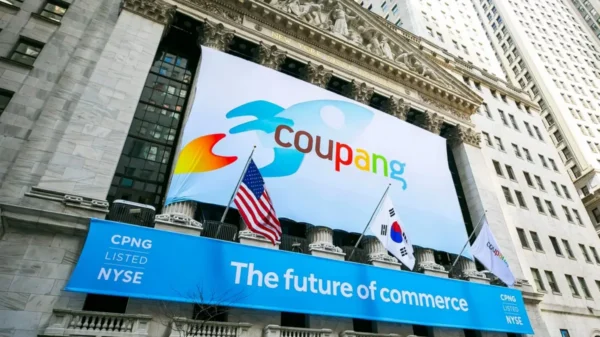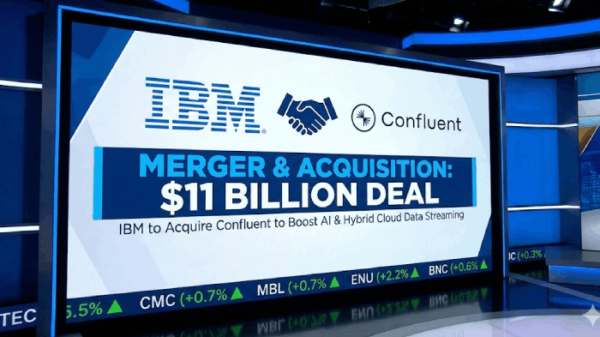The Impact of AI on Job Automation
Discover the impact of AI on job automation and the potential implications of this technology. Learn how AI is transforming the workplace and what this means for the future of work.
KEY TAKEAWAYS
- AI is causing a shift in the labor force, with more jobs becoming automated and fewer people being needed.
- • Automation increases productivity, accuracy, and cost savings.
- AI enables businesses to become more competitive.
- There is a risk of job displacement due to automation.
- • Policies should be created to protect workers and encourage retraining and re-skilling.
Background
The impact of artificial intelligence (AI) on job automation has become one of the most pressing topics of discussion in today’s economy. The rapid advancement of technology and automation has made it increasingly possible for machines to take over many of the labor-intensive tasks currently performed by humans. This shift has created both positive and negative implications.
What is AI?
Artificial intelligence (AI) is an area of computer science that focuses on developing machines that can think and act like humans. It is a form of machine learning that enables computers to learn from data and experience and to make decisions and solve problems on their own. AI is used in a variety of industries, ranging from manufacturing and healthcare to finance and retail.
What is Job Automation?
Job automation is the process of replacing human labor with automated machinery and systems. This can involve robots or other computer programs that are designed to perform specific tasks. Automation can be used to improve efficiency, reduce costs, and improve the accuracy of a company’s operations. Automation is becoming increasingly important as companies strive to become more competitive in an ever-changing marketplace.
The Rise of Automated Jobs
The rise of AI-driven automation has led to an increase in the number of automated jobs in many industries. Automated jobs are those that are typically done by machines or robots, as opposed to humans. This type of job automation has been embraced by companies looking to reduce costs and increase efficiency.
AI-driven automation is also being used to automate processes that were previously done manually. This includes tasks like customer service, data entry, and even some medical procedures. As AI technology continues to improve, the number of automated jobs is likely to increase.
The Impact of Automation on Low-Skill Workers
The automation of low-skill jobs has had a significant impact on workers. Low-skill workers are those who lack the skills or education needed to perform higher-skill jobs. The automation of low-skill jobs has resulted in a decrease in the number of jobs available to these workers. This has had a significant economic impact, as many low-skill workers are unable to find employment or are forced to take jobs that pay less than they did previously.
The automation of low-skill jobs has also had a psychological impact on those affected. Many low-skill workers feel that their job has been taken away from them, resulting in feelings of insecurity and anxiety. This has led to a decrease in morale and an increase in feelings of stress among those affected by automation.
The Future of Job Automation
As AI technology continues to improve, the automation of jobs is likely to become more widespread. This could have a significant impact on the job market, as many jobs that were previously done by humans are automated. This could result in a decrease in the number of jobs available and an increase in the cost of labor.
However, it is important to note that the automation of jobs is not necessarily a bad thing. Automation can lead to increased efficiency and productivity, which can benefit both businesses and consumers. Additionally, automation can free up workers to focus on more complex tasks, allowing them to add more value to their organization.
Automating High-Skill Jobs
The Impact of AI on Job Automation is an increasingly discussed topic due to the rapid advancement of technology. AI and automation are beginning to have a significant impact on industries all over the world, particularly in the automation of high-skill jobs. Automation of these higher-skill jobs can be incredibly beneficial, but also has the potential to disrupt the labor market.
The Benefits of Automating High-Skill Jobs
One of the biggest advantages of automating high-skill jobs is the potential for increased efficiency and productivity. Automation can help to streamline processes, reduce errors, and increase accuracy. This can lead to higher quality products and services, as well as improved customer satisfaction. Automation also has the potential to reduce labor costs and increase profitability.
Potential Drawbacks of Automating High-Skill Jobs
While there are many potential benefits to automating high-skill jobs, there are some potential drawbacks as well. Automation could lead to job displacement, as many high-skill jobs are replaced by machines. This could lead to a decrease in the number of jobs available and could harm wages and job security. Additionally, automation could lead to a decrease in the demand for certain skills, which could make it more difficult for workers to find employment.
Potential Benefits of Job Automation
The advent of Artificial Intelligence (AI) has enabled the automation of many jobs, and while this can be seen as a threat to jobs, it can also present several potential benefits. AI-driven job automation can help to reduce costs, increase efficiency, and provide better customer service.
Cost Reduction
One of the main benefits of job automation is the potential to reduce costs. By automating certain jobs, companies can cut back on labor costs and reduce the need for expensive human resources. Automation also eliminates the need for costly training and retraining, as machines can be programmed to perform the same tasks over and over again. Additionally, AI-driven automation can help to save time, which can lead to further cost savings.
Increased Efficiency
AI-driven automation can also increase efficiency in the workplace. Machines can work faster and more accurately than humans, and they can be programmed to complete tasks more quickly than human workers. Automation also eliminates the need for tedious manual processes, allowing workers to focus on more creative tasks.
Improved Customer Service
Another potential benefit of job automation is improved customer service. Automated systems can be programmed to respond quickly and accurately to customer inquiries, providing customers with the answers they need promptly. They can also be programmed to recognize customer preferences and provide tailored solutions for each individual. Automated systems can also provide better tracking of customer interactions, helping businesses to understand customer needs and respond more effectively.
Challenges of AI in Job Automation
The process of automating jobs with AI is complex and often expensive. Organizations must invest in the technology, time, and resources required to build, maintain, and update AI systems. Despite its potential, organizations must be aware of the challenges associated with AI-driven job automation.
Costs of Automation
The cost of automation is one of the biggest challenges associated with AI-driven job automation. AI systems are expensive to build, maintain, and update. Organizations must also consider the cost of training their staff to use the technology, as well as the cost of potential disruption to their operations during the transition.
Uneven Distribution of Benefits
Another challenge associated with AI-driven job automation is the potential for unevenly distributed benefits. While organizations may benefit from increased efficiency and cost savings, employees may not share in the same gains. AI systems can also amplify existing biases, leading to further inequality in the workplace.
Job Losses
The most significant challenge associated with AI-driven job automation is potential job losses. AI systems are designed to replace human labor, and many organizations are already beginning to automate jobs that were previously performed by humans. This could lead to large-scale job losses, particularly in industries that are heavily reliant on manual labor.
Final Thoughts
The AI revolution is driving the automation of jobs both in the public and private sectors. Although the automation of jobs may cause fear of unemployment, it also offers exciting opportunities to professionals who can adapt to the new technological environment. AI can help to improve productivity and reduce costs while creating new jobs in the process. In short, AI and job automation are having a profound effect on the way we work, and it is important to consider how best to embrace the changes they bring. Ultimately, the impact of AI on job automation will depend on how effectively companies, governments, and individuals respond to the challenge.













































